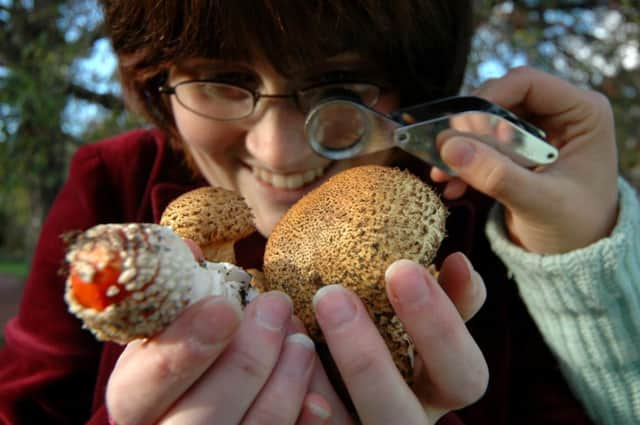Mushroom pickers warned after raft of poisonings


The National Poisons Information Service (NPIS) said it had already been consulted for advice on 84 cases of mushroom poisoning from across the UK so far this year.
With the foraging season now under way, the NPIS, which has an office in Edinburgh, is increasing its warnings that some mushroom varieties found growing in the UK are poisonous and can even be fatal.
Advertisement
Hide AdAdvertisement
Hide AdLast year, NPIS recorded 237 cases of poisoning across the UK, with many involving children under the age of ten.
The dangers of foraging for mushrooms were highlighted in 2008 when the author of best-selling book The Horse Whisperer was taken to hospital in Scotland.
Nicholas Evans and several family members had to have kidney dialysis after eating toxic mushrooms they had gathered on a woodland walk in Forres.
“As the weather starts to change, many people will soon be heading out to the countryside to seek out wild food which can be a really fun thing to do,” said Dr John Thompson from the NPIS.
“But when it comes to wild mushrooms, people really need to be aware of the very real potential dangers involved.
“It is always at this time of year that we see a noticeable increase in poisoning cases. While many mushrooms growing in the wild are tasty and safe to eat, it is not always easy to differentiate between toxic and non-toxic species even for people with experience in foraging.
“That’s why we say that people should not eat mushrooms collected in the wild unless they are very familiar with the various types that grow in the UK.”
Among the many poisonous varieties of mushrooms are Amanita phalloides, commonly known as the death cap, Amanita virosa, also known as the European destroying angel, and types of mushroom from the group Cortinarius, often called webcaps.
Advertisement
Hide AdAdvertisement
Hide AdDr Thompson said eating poisonous mushroom could cause problems ranging from stomach upsets to diarrhoea, while some species could lead to liver or kidney failure.
“The message we are trying to get out is that if you are really not certain what it is you are picking, please don’t swallow it,” he said.
Dr John Harrison, from the Centre for Radiation, Chemicals and Environmental Hazards, said: “People heading outdoors this autumn should be aware of the dangers that mushrooms can pose.”
Fungi expert Neville Kilkenny, a consultant field mycologist working in Scotland, said many people would not eat mushrooms found in the wild due to concerns they might be poisonous.
“As a nation, we are quite mushroom-phobic, but with a growing interest in wild food foraging does seem to be on the increase,” he said.